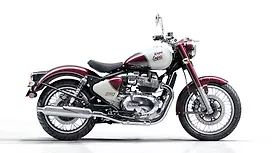Introduction

I am cruising at about 80kmph in third gear on a long and slick stretch of tarmac flanked by mesmerising green fields on the outskirts of Jerez, Spain. Out of playfulness, I whack open the throttle of the Street Triple R and the front wheel lifts a few inches off the ground. And that reminds me of Triumph officials stating that the new R is as fun as the previous-generation RS, while the new RS is even more capable. On a close-to-150km first ride of the 2023 Street Triple R, more such instances assured me that Triumph isn’t exaggerating about the improvements in the bike. Let’s see how it all unfolded.
The Visuals

The 2023 iteration of the Street Triple looks more mean and menacing. The bodywork has been redone to look sharper and more angular from front to rear. The front fascia appears angrier with a tweaked headlamp and is accompanied by a smaller cowl on top and a larger air intake. Then, the fuel tank is sleeker while its extensions stretch more towards the front and look like a part of the tank now. Although the overall visual bulk is stripped off to some extent, the stance seems more like a predator ready to pounce.
The Package

The new Street Triple R doesn’t just look wilder but the 765cc, inline triple-cylinder engine is also more potent; at 118bhp and 80Nm, it makes around 2bhp and 1Nm more than before. This has been achieved by revising the internals of the engine, increasing the compression ratio, adding a freer flow exhaust, and making the combustion chamber more optimised. Moreover, to make the roll-on acceleration punchier, the gear ratios have been revised by shortening all gears from the second cog onward.

It’s also more contemporary on the electronics front with new cornering ABS and cornering traction control systems. Even the number of riding modes available has gone up to four, and the new ‘Rider’ mode allows one to configure the behaviour of electronics and throttle response as per their liking. The retained preset modes include Road, Rain, and Sport. Moreover, the handlebar has been widened by 12mm to offer a more commanding riding position.

Apart from these changes, the motorcycle is majorly the same as its predecessor. In fact, it has been demoted of sorts on the tyre front as Triumph has replaced Pirelli Rosso Corsa III with Continental ContiRoad rubbers. The 17-inch wheels are suspended by Showa Separate Function forks and Showa monoshock with full adjustability at both ends. Stopping power comes from Brembo M4.32 and Brembo single-piston calipers at the front and rear, respectively.

All the information is displayed on a combination of an LCD and a tiny TFT dash, similar to the Trident 660. Then there’s a bi-directional quick shifter as standard, heated grips, wheelie control (governed by TC), self-cancelling indicators, and switchgear which is slightly more basic than the RS.
The Ride

A short spin on the RS before hopping on the R gave me a good perspective on how different they are in terms of riding experience and capabilities. Trust me, the difference is minimal with the RS being a tad better on certain fronts. The engine on the R, for instance, is just as punchy, smooth, and melodious. It’s only around the lower revs that I felt it took slightly more time to pick up the pace. However, once past 5,000-6,000rpm, the Street Triple R darts ahead with a profound vigour, crosses 100kmph in a jiffy, and goes on accelerating with the same urgency until the redline in every gear. Reaching some ridiculous speeds on R is almost as quick an affair as the RS, with the same inline triple wail accompanying you.

Similarly, the quickshifter functions with a light touch of your toe. The gears downshift with a satisfying blip and upshifts are nearly seamless. Although this isn’t the smoothest quickshifter I have come across, it’s fairly effortless to operate.
Now, as fast as the Street Triple R goes, it stops equally quickly. Of course, its Brembo M4.32 front calipers don’t have as fierce a bite as the RS’ Styelmas. However, nowhere did I feel the need for a better stopping power. In fact, I found the R’s brakes to be friendlier and less intimidating due to the more progressive feel that they offer while also delivering ample bite. New riders will truly appreciate this aspect of the bike.

The Street Triples have always been revered for their sweet handling and the R is no different. There’s a tremendous steering feel and tipping it into corners is a matter of a gentle push on the bar. Once leaned over, it follows the exact line the rider wants it to, and exits, even if accelerated aggressively, without losing composure whatsoever. The tyres, too, deliver commendable grip and feel, while only feeling a bit squirmy around slippery corners. Further, owing to the steeper rake and better tyres, the RS feels a touch more communicative whereas the R is equally agile and playful.

Triumph had set up the bike’s fully-adjustable suspension for road use and the front and rear felt absorbent. Although Jerez barely had rough roads, whatever patchwork we came across, the R soaked up everything pretty well. Even while doing triple-digit speeds, the mild elevation changes did not upset the motorcycle and it felt planted. It was only while crossing deeper ruts or sharp road joints that the rear felt slightly firm but not outright unforgiving.

As for the ergonomics, the 826mm seat height of the R allows you to get on the bike fairly easily. For shorter riders, Triumph offers optional seat and suspension lowering options too. Once seated, the wide and straight handlebar provides a commanding riding posture, and the seat has enough cushioning and space to be comfortable all day long. Even the footpegs are rear set, but not the supersport-like rear. However, just like on the RS, I found windblast to be a major concern here as well. So, if you’re a high-speed tourer kind, an aftermarket windscreen is a must.

Lest I forget, I found the layout of the R’s console to be more legible than the RS, although the latter has a fancier setup. While the TFT, for changing modes and other parameters, is a tiny unit on the R, the more important data like speed, rpm, fuel level, and gear position are displayed on a larger LCD on top in an uncomplicated font and layout.
Should you buy it?

As has always been the case, the Triumph Street Triple R is a phenomenal motorcycle. On the gorgeous roads of Spain with wide and tight corners along with long straights, the motorcycle truly felt at home. While the spirited engine performance and incredible agility make it sporty and fun, the strong brakes and precise electronics add to the safety quotient. Except for the immense windblast at high speeds, it’s quite comfortable and spacious, even for longer rides. In a nutshell, it’s difficult to find major flaws in the Street Triple R.

Now, if you’re still wondering if the RS is better, it actually is, especially in terms of brakes, tyres, and handling. That said, you’ll only feel the R lacking if you do frequent track days. Otherwise, on longer rides or weekend jaunts around your favourite switchback, the R feels almost equally capable. Now, we are waiting for Triumph India to announce its price which, if falls under Rs 10 lakh (ex-showroom) mark, will make the Street Triple R an absolute no-brainer.
Photography by Triumph

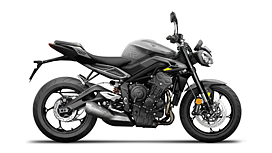

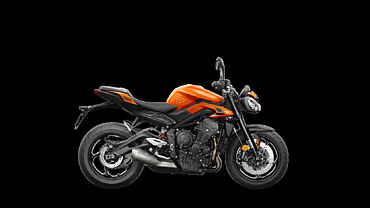
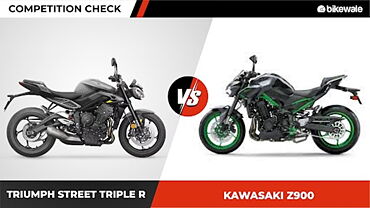

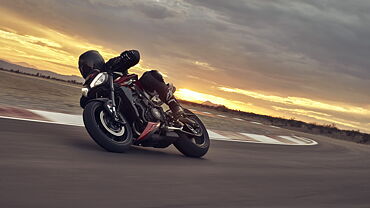

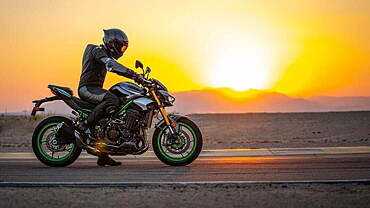
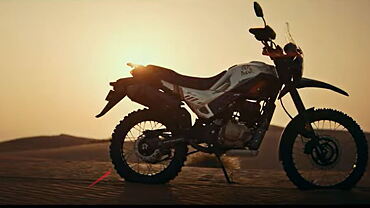
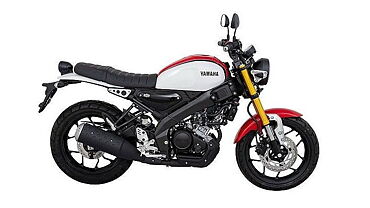

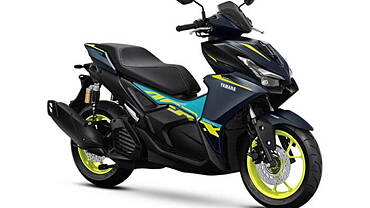
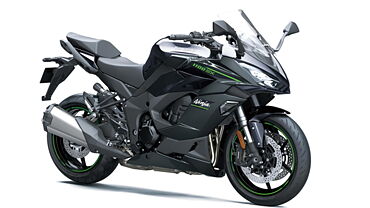
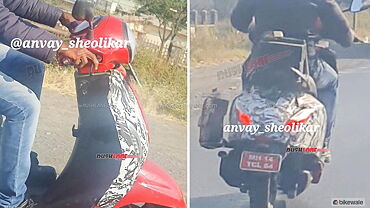
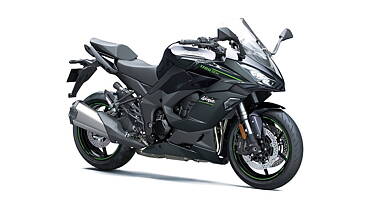
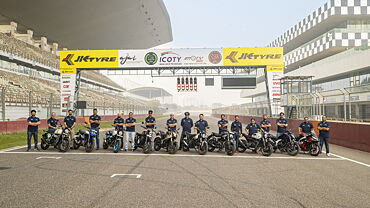
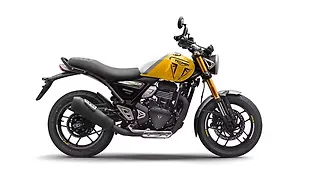

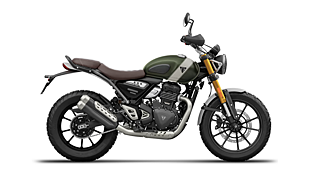


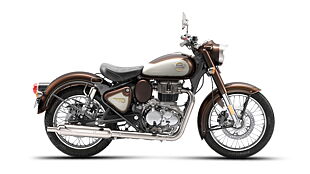

![Bajaj Chetak [2025] Bajaj Chetak [2025]](https://imgd.aeplcdn.com/272x153/n/cw/ec/193633/chetak-2025-front-view.png?isig=0&q=80)
